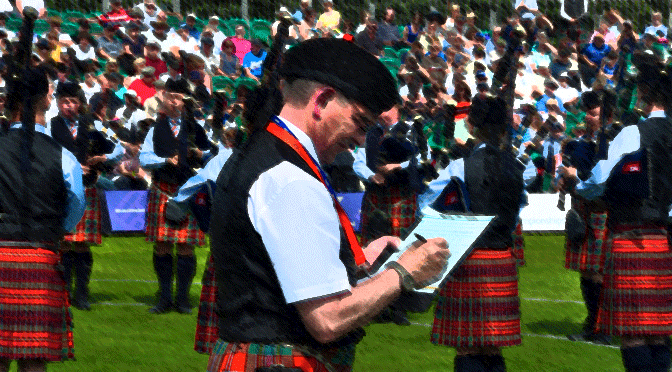
The factors outlined in my last article regularly affect adjudicators but there are others which are totally unexpected. Some examples of both types of these situations I encountered during my adjudication career are as follows. All of them are true.
Perception or fact? The first time I judged the Grade 1 World Pipe Band Championships I was on the MSR drumming competition. The potential winners being talked about beforehand were Strathclyde Police and Simon Fraser University. I always ignored the predictions as anything can happen on the day of a competition and often does.
Nevertheless, I remember being very impressed with the SFU performance and as it progressed I was thinking that this could be the winning drum corps. Midway through the strathspey, however, whilst writing a comment I sensed something and looked up to see a young lady in the middle of the corps with two hands above her head holding her drumsticks. Why, I don’t know.
This hiccup lasted at least half a part and the effect on the corps was minor but I decided that I had no choice but to deduct points. Strangely it was not apparent that any of the spectators or other adjudicators had noticed what had happened (and only one of my colleague adjudicators confirmed to me later that he had also seen the incident from the side-lines).
If my memory serves me correctly, Strathclyde Police won the contest from SFU by a single point. I subsequently felt very bad about that for a long time afterwards and had doubts that I had done the right thing.
Some years later when judging in the USA I met the young lady in question and she confirmed that I had been correct and that she understood the action I had taken. It was a classic example of how adjudicators need to make a decision in an instant and then adhere to it; there is no going back.
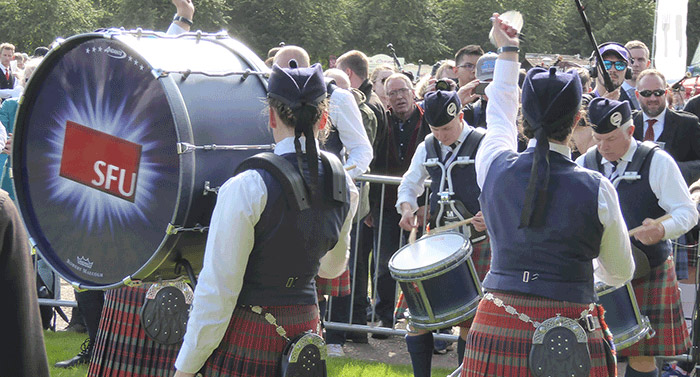
A similar occasion was when I was judging ensemble in a lower grade final one year at the Worlds. The band had only six pipers (i.e. the minimum for the grade) and I was sure that one piper did not play throughout the whole performance. I did not want to be hard on a band of mostly youngsters but decided that I had no choice but to note my conclusion on the critique sheet.
At the end of the contest I asked the two piping adjudicators (both senior former Pipe Majors) what they had thought. Both had erred on the safe side by putting the variation in piping sound down to bad blowing. That put doubt in my mind and I wondered if there would be repercussions.
The following day I was at an RSPBA International Conference in Washington Street. Before it started I mentioned the Worlds incident to the then RSPBA Chairman. When I gave him the name of the band in question he told me that the Pipe Major of the band had asked him before the Final if he could play a ‘dummy’ piper as one of his pipers had taken ill after the qualifying heat.
The response he had been given was that it was for the Pipe Major himself to decide and risk whether the adjudicators would notice. Only one did. The role of the adjudicator is to notice such things but sometimes it is very difficult. This sort of incident also illustrates that the adjudicator whose result is widely different from his/her colleagues is not necessarily the one at fault.
Another example was at a Major Championships in Aberdeen when I was judging drumming. During one performance the ensemble adjudicator whispered to me as he was walking past to listen particularly to the sound of the bass drum which he thought was destroying the band sound balance. I had to tactfully say that the sound was coming from a band in an adjoining competition ring (though I admit that it was on occasion difficult to discern).
The first time I judged ensemble was in Grade 1 at the British Championships in Stranraer in the early 1990s. When judging ensemble I preferred to stand outwards from the Pipe Major so that I could look diagonally across the band to ensure that all the players had started. I then walked alongside the band before taking up a mainly static position at the head of the band circle for the rest of the performance.
In my view, if you move round the circle the sound projection keeps changing. When Strathclyde Police Pipe Band struck up that day I was close to Pipe Major Ian McLellan whose hand unexpectedly slipped slightly when reaching the chanter, producing a loud squeak sound.
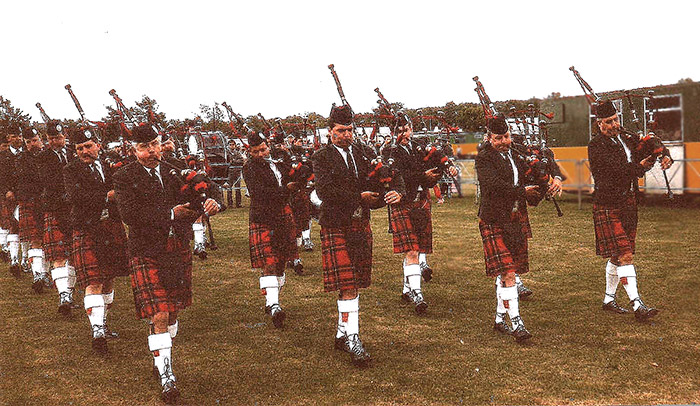
I had no choice but to note that on my critique sheet. Strangely the inaccurate introduction was not noticed by either piping adjudicator, one of whom was right beside me. Another example of fact versus perception.
At another Major Championships when I was the reserve adjudicator I decided to listen to the Grade 1 competition from just behind the spectator fence. When Field Marshal Montgomery struck up after the introductory rolls, an individual in Highland dress, who was obviously a player from another band, and who was standing in front of me, immediately said to his colleague, ‘They are not going to win today with a sound like that’.
I could not resist saying, ‘Are you not going to listen to the actual performance before making a judgement?’ I was obviously recognised and neither provided an answer. Adjudicators have to base their assessment on the whole performance but many spectators do not.
- To be continued. Read the first instalment in this series here.

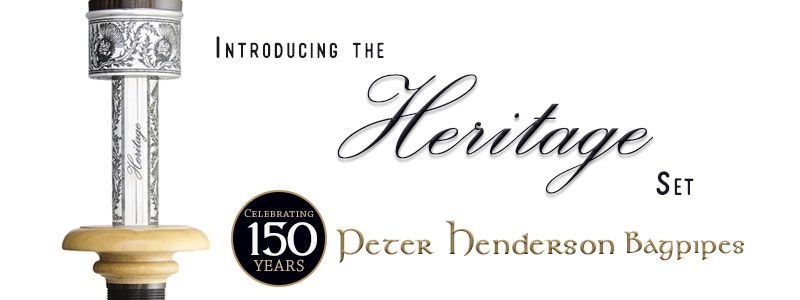

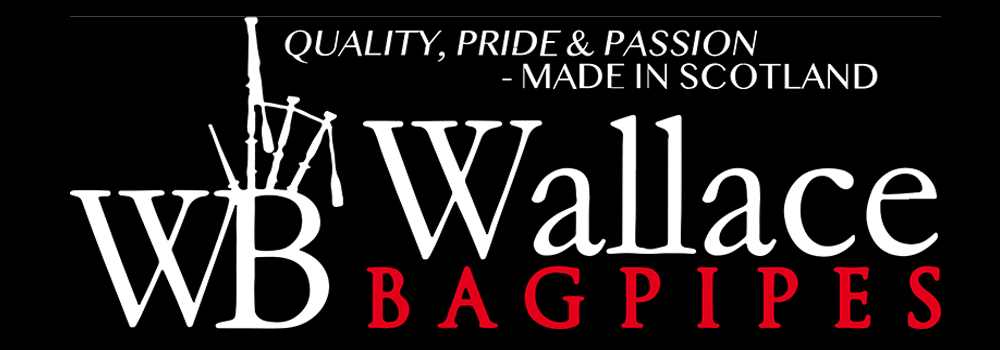




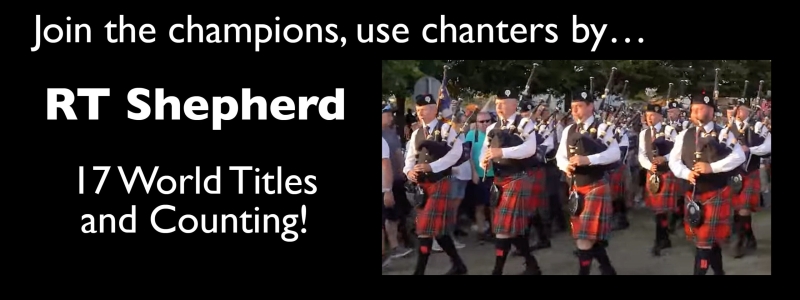




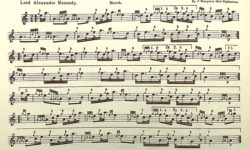
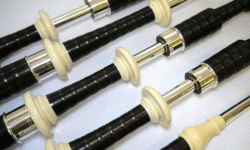
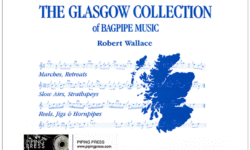

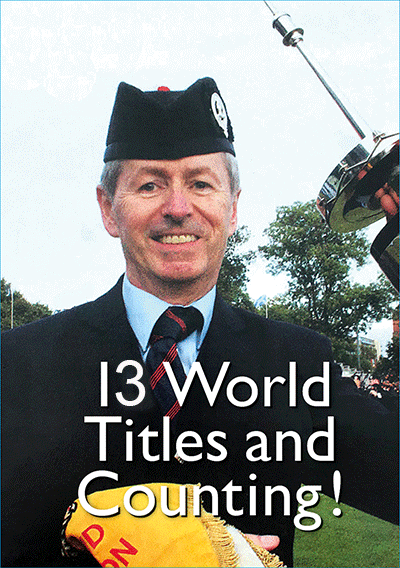

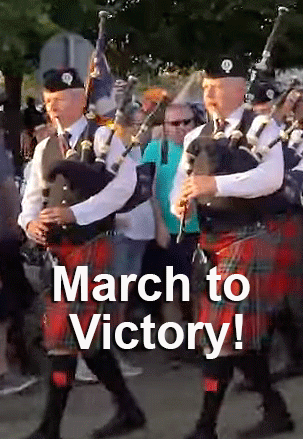







Once again Alistair strikes many familiar chords.
Once asked for some advice by a piper of note, who was in the process of training to becoming an adjudicator, I gave him a one word answer…….LISTEN ! This came from an incident which happened in my first experience adjudicating Grade 1 piping at a Major Championship. The band, which found itself in the eye of a storm, had already won the first two Majors that season and on the day in question it began in a confident manner. I noted in particular the quality of the drumming. However, not far into the performance my ears were made to twitch when the drone sound, which had been good till then, suddenly became very unsteady. On looking up the problem became yery apparent one piper, most unfortunately, appeared to be struggling from an attack of nerves. Eventually the piper stopped playing, tried to start again but stopped, though started for the third time that day and continued somewhat shaken. Unfortunate for the individual and the band as a whole.
Still to this day I find it impossible to believe that the second piping and ensemble adjudicators did not appear to hear or see anything and placed the performance in question first. I belived then, and still do, it was a classic case for a full and thorough review, for which I was ready.
Sadly here we are 30 years later and a robust, fit for purpose Adjudicator Review System has yet to be put in place by the RSPBA. All concerned, adjudicators and bands alike, could benefit from introduction of an Independent Review Group with the specific focus Pipe Band Contest Outcomes.